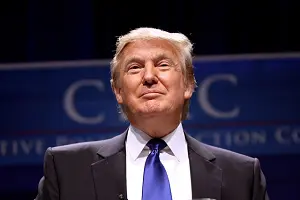The new Senate sanctions bill on Russia backs president Donald Trump into a corner: either side with Republican legislators, or Vladimir Putin. That will be the story line weaved in the congress and the political press, making it that much harder for Trump to realize his hopes of improving relations with Russia in the fight against jihadis.
But this latest bill, steeped in rhetoric about standing up for Ukraine, goes beyond the original scope for sanctions. Within the political rhetoric of the day, the amendment states that the Senate agrees with near unanimity that Russians meddled in the U.S. elections.
On the practical side, it gives American shale oil producers some protection as it seeks to corral Russian energy companies worldwide instead of just in Russia, and fine companies for doing certain types of business with them. Moreover, the legislation calls out Putin for daring to stand in the way of regime change in Syria and considers whether foreign investors buying Russian government bonds are indirectly sponsoring America’s historical adversary. It sets the table for Iran-like, full-blown sanctions at some point in the future.
“In the long term, the move deprives Russia of its ability to produce more oil from offshore sources, and shale, thus giving more leeway to Americans to continue being the nuisance to OPEC and Russia,” says Sijbren de Jong to Forbes Magazine. “In the short-term, the additional sanctions put pressure on Russia and limit the risk for Europeans wanting to lift sanctions, which is good for Ukraine,” he says.
The full article can be read here.
Sijbren also gave some comments to Polish news website BizesAlert. The full note can be read here.






